Global Perspective
- Chronic kidney disease (CKD) is estimated to affect approximately 850 million people worldwide
- CKD can progress to kidney failure, leading to severe complications and premature mortality
- By 2040, CKD is projected to become the 5th leading cause of years of life lost, highlighting the urgent need for global strategies to combat kidney disease
National Data – 2022
| Population | 52.7 M (2019) |
| Number of Nephrologists | 46 |
| HD centres | 215 |
| HD patients | 6,300 |
| Kidney Transplant patients | 829 + |
| Transplant centres | 7 (5 private + 2 public) |
| HD reimbursement by NHIF | US $ 95.00 |
| Cost of Transplant | US $ 20,000.00 (Private), US $ 5,000.00 (Public) |
| Transplant reimbursement by NHIF | US $ 5000.00 |
| Reimbursement for Transplant medications | N/A |
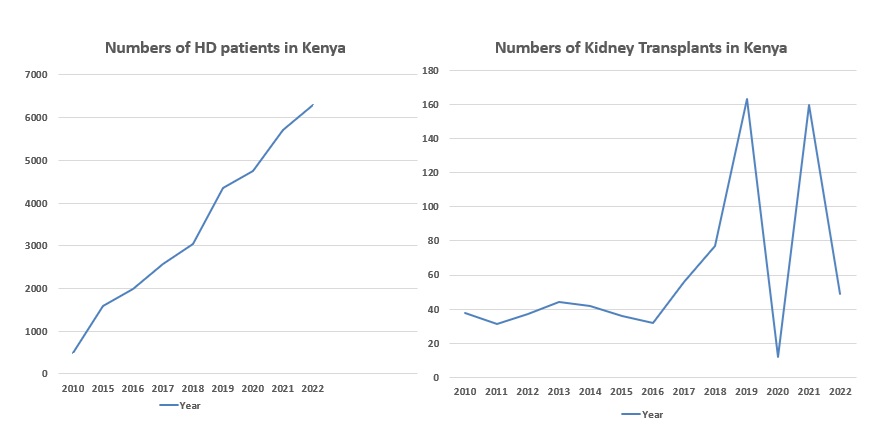
The Kidneys

Most people have two kidneys – which are organs shaped like beans, each one is about 8-12 cm long, weighing 150 gms, located on either side of the spine, deep in the abdomen, below the ribs.
What is The Function of The Kidneys
- They filter the blood to get rid of waste products of metabolism
- They keep the electrolytes (sodium and potassium being the most important) and water content of the body constant
- They secrete a number of essential hormones some that
- control blood pressure (Renin)
- regulate the production (Erythropoietin) of red blood cells and
- determine the bone strength (Calcitriol)
- Maintain acid-base balance in the body
Water and electrolytes
- The kidneys are central to maintaining the correct balances of potassium and sodium – and acidity (often referred to as pH)
- The salt and water balance is maintained by a series of hormones acting on the kidney
- The kidneys recognise and act upon a series of messages that vary according to how much fluid is drunk
- If a person does not drink enough, the body fluids become more concentrated and, as a result, the kidneys excrete a more concentrated urine
- If an excess of fluid is drunk, the body fluids become more diluted, and the kidneys excrete a more dilute urine, getting rid of the excess that has been taken in
- If the body is in a satisfactory balance, approximately 80% of ingested fluid is excreted within an hour.
Waste products
- The kidneys act as very efficient filters for ridding the body of waste and toxic substances like urea and creatinine, and returning vitamins, amino acids, glucose, hormones and other vital substances back into the bloodstream
- The kidneys receive a high blood flow (1 L/minute) and this is filtered by very specialised blood vessels
- The fluid that is filtered (180 L/day) is then processed by a tiny filters called tubules to generate 1-2 L of urine
- In this way, the substances necessary for the good functioning of the body are retained, and those that are not needed are excreted.
- This is vital to make the body function efficiently
Hormones
- The kidneys secrete a number of hormones, which are important for normal functioning of the body
- One such hormone is renin, which keeps blood pressure normal. If blood pressure falls, renin is secreted by the kidneys to constrict the small blood vessels, thereby increasing blood pressure
- If the kidneys aren’t functioning correctly, too much renin can be produced, increasing blood pressure and sometimes resulting in hypertension (high blood pressure)
- This is why a number of people with kidney diseases also have high blood pressure.
Erythropoeitin
- Erythropoeitin is a hormone that is secreted by the kidney, and acts on the bone marrow to increase the production of red blood cells
- If kidney function diminishes, insufficient hormone is produced and the number of red blood cells being produced will fall, resulting in anaemia
- This is why many people with reduced kidney function will have anaemia – a low blood count
Vitamin D
- Vitamin D is essential for a number of bodily functions
- In the normal diet, Vitamin D is in an inactive form, and needs to be activated by the kidney before it can act within the body
- This ‘activated’ form of Vitamin D is essential for the absorption of calcium by the intestine, the normal structure of bones and effective muscle function
- In people with impaired kidney function, there is often a low blood calcium and an inadequate amount of Vitamin D, resulting in muscle weakness and a softening of the bones
Kidney Failure – Signs and Symptoms
- When the kidneys are not working properly, harmful toxins and excess fluids build up in the body, which may cause the symptoms of kidney failure
- These symptoms can include nausea, vomiting, high blood pressure, extreme tiredness, persistent headaches, swelling in the face and ankles and difficulty in breathing
- Patients with Advanced Kidney Failure will need dialysis or preferably a kidney transplant for those who qualify
Causes of Kidney Disease
- Diabetes – Leading cause of kidney disease
- High Blood Pressure – Damages kidney blood vessels
- Glomerulonephritis – Inflammation of kidney filters
- Polycystic Kidney Disease – Genetic disorder
- Repeated Kidney Infections– Leads to chronic damage (Pyelonephritis)
- Excessive Use of Painkillers – Long-term NSAID use harms kidneys
- Autoimmune disease – eg Lupus (SLE)
Red Flags For Kidney Disease
- You have hypertension
- You have diabetes
- One of your parents or other family members suffer from kidney disease
- You come from an ethnic group with high risk
- You have protein in the urine
- You are overweight
Dialysis
- Dialysis is needed when kidneys fail and cannot remove waste effectively
- Hemodialysis: Blood is filtered outside the body using a dialysis machine
- Peritoneal Dialysis: A special fluid is introduced into the abdomen to remove waste
Vascular Access
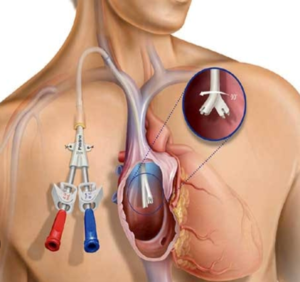
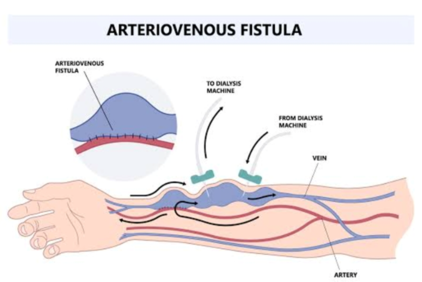
Hemodialysis uses a machine to filter one’s blood and temporarily remove waste products, extra salt water from the body.
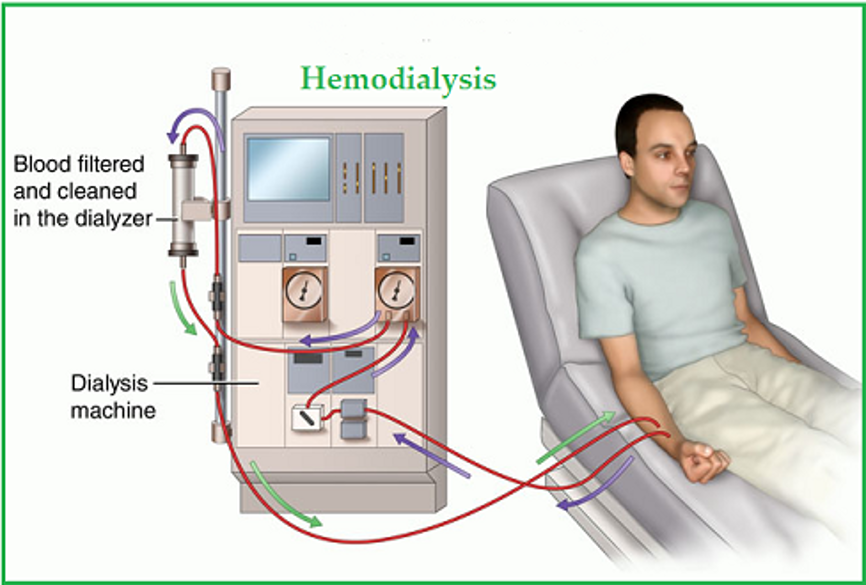
Peritoneal Dialysis
Peritoneal dialysis uses the lining of one’s abdomen to remove waste products, extra water and chemicals from the body
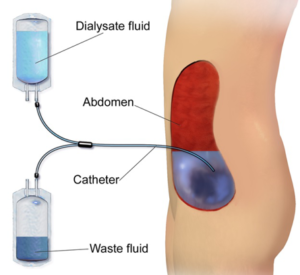
Kidney Transplantation
- A healthy kidney from a donor is transplanted into a patient with kidney failure
- Can be from a living donor or deceased donor
- Offers a better quality of life compared to dialysis
- Requires lifelong medication to prevent rejection
Kidney Transplant
This is the best form of treatment for patients with advanced Kidney Failure and should be encouraged for those who qualify.
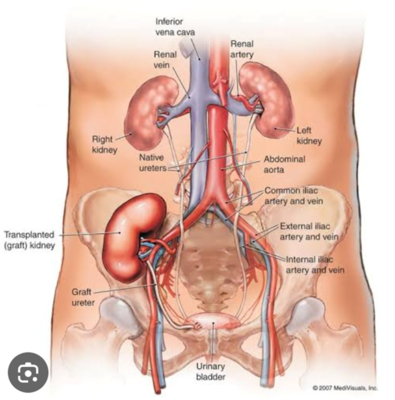
Keeping Your Kidneys Healthy
- Lifestyle Changes: Eat a balanced diet, reduce salt intake, stay hydrated
- Medication: Control diabetes and hypertension and proteinuria
- Regular Monitoring: Check kidney function regularly
- Quit Smoking & Limit Alcohol: Protect kidney health
- Maintain a Healthy Weight: Reduce strain on kidneys
- Avoid NSAIDs: These medications may cause kidney damage
by Dr. Ahmed Twahir – Clinical Director, Parklands Kidney Center
